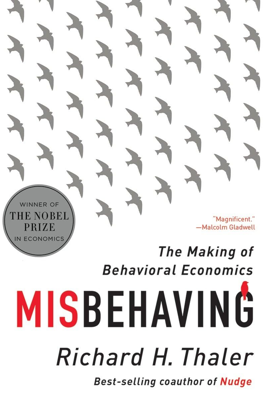The Gauntlet
Challenges and Pushback in Academic Economics
Upon accepting a position at Cornell University, the author was tasked with proving the effectiveness of behavioral economics. He identified two main challenges: producing research that substantiated the new approach he was advocating, and defending it against skepticism from traditional economists.
Main Criticisms and Responses
The "As If" Argument: Critics argued that even if individuals could not solve complex problems like economists assumed, they behaved "as if" they could. This argument, historically supported by the likes of Milton Friedman, claims that the realism of assumptions in economic theories is irrelevant if the predictions are accurate. However, the author pointed to the work of Kahneman and Tversky, demonstrating that individuals often do not behave rationally as presumed by these traditional models.
Incentives and Rationality Concerns: It was often contended that higher stakes would enhance rational behavior due to greater incentives. Yet, experimental evidence such as Grether and Plott's experiments on preference reversals showed that increasing the stakes could amplify irrational decisions, thus challenging this notion.
Learning Ability Argument: Another common belief was that repeated experiences should theoretically improve decision-making skills. Critics suggested that irrational decisions in controlled experiments could be attributed to participants' unfamiliarity, implying that mistakes would not be replicated in real-world scenarios where individuals have more practice. The author refuted this, emphasizing that real life is not as consistent as experimental conditions, making it harder for learning to correct irrational behaviors comprehensively.
Market Forces as Corrective Mechanisms: The strongest defense for traditional economic assumptions is the trust in competitive markets to counterbalance individual irrationality. Discussions usually ended in vague references to the "invisible hand" of the market, suggesting that erroneous behaviors would be corrected by market mechanisms. However, the author argued that markets cannot inherently transform irrational individuals into rational agents, as personal biases and suboptimal decisions do not necessarily preclude business success or survival.
As the discussions and debates unfolded, the author recognized the importance of presenting robust empirical evidence to overcome the abstract criticisms posed by traditional economists. His early experiences at academic conferences and interactions were formative, shaping his resolve to establish behavioral economics as a viable and necessary component of economic study.
Academic Journey Continues at Cornell
The author faced difficulties in publishing his seminal paper, "Toward a Positive Theory of Consumer Jonghyun." It was only after multiple rejections that he found an opportunity in a new journal, which finally allowed his ideas to reach the academic community. This period marked the beginning of his impactful contributions to behavioral economics, despite initial resistance from established corners of the discipline.
In conclusion, the author's embarkation at Cornell was not only a new chapter in his academic career but also a steadfast continuation of his advocacy for behavioral economics. His strategic responses to criticisms and his persistence in publishing his work underscored a dedicated and thoughtful advancement of economic thought that integrates the complexities of human behavior.
